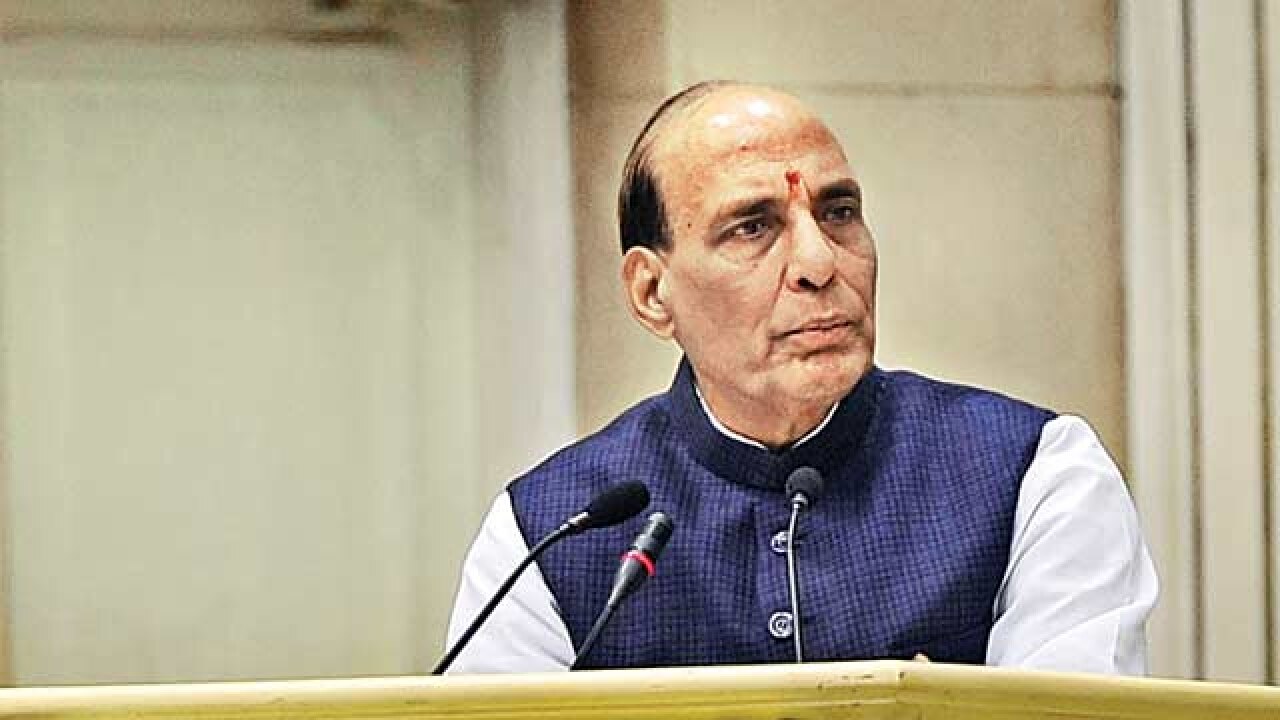
Union home minister Rajnath Singh’s statement alluding to plans to offer legal protection for under-cover operations and the use of gathered intelligence as evidence in a court of law is a significant change in the approach towards anti-terror investigations. The Unlawful Activities Prevention Act has no mention of immunity for undercover agents who are tasked to infiltrate banned groups. Currently, intelligence agencies operate in a grey zone where they are at the forefront of detecting terrorist activities but take a backseat as soon as criminal cases are registered and arrests are made. At this stage, state police units take over, and the credit, and occasionally the flak, for the investigations are then borne by the police force which is officially in charge. Undercover agents and intelligence operatives, by the very nature of their functions, have to maintain secrecy and common sense and long-term interest mandates that their identities are not exposed. Undercover agents also assume roles which will require them to break laws to ensure their cover is not blown. While intelligence operatives work in an integrated manner with law enforcement and investigating agencies, which have the exclusive power to make arrests and seizures and secure custody of suspects, undercover operations may not have that luxury.
The Ishrat Jahan case has produced an unprecedented rupture in the fabric after the Central Bureau of Investigation chargesheeted Intelligence Bureau officials along with Gujarat police personnel for involvement in the alleged fake encounter of Ishrat and three others. The accused officers have consistently claimed that it was a covert operation against the Lashkar-e-Taiba in which both the Centre and the state machinery was kept in the loop. The implications of intelligence officials being chargesheeted for the first time were lost on no one. The home ministry has consistently recorded its unhappiness over the prosecution of the IB officials, warning that if would impede intelligence-gathering operations. It is unclear if Rajnath Singh made the statement on legal protection with the Ishrat controversy in mind or this is part of a plan to scale up counter-terrorism operations, in which case investigation and intelligence agencies will be at the forefront.
Currently, intelligence agencies function under a statutory vacuum with no oversight by democratic institutions, except the political executive. The belief has held firm that oversight by parliament or judiciary is counterproductive. Despite the significant role played by the intelligence services in the arrest of terrorists, police chargesheets never make a mention of their involvement. So the proposal to adduce the gathered intelligence as evidence in terror trials is an interesting move. While intelligence and under-cover operatives will be insulated from legal action, the intelligence they produce will be scrutinised in courts. This may seem contradictory, but it could help, at least partially, lift the veil of opacity which has marred many an investigation and led to acquittals for want of adequate evidence.
The US has laws like the National Security Act which legally sanctions covert action by the Central Intelligence Agency (CIA) and other federal agencies. Merely offering legal protection to undercover and intelligence agents without ascribing their rights, responsibilities and regulations would just be a perfunctory act of lawmaking. It is important for the government to send down the message that nobody is above the law and human rights violations will not be tolerated. The home ministry would do well to frame a law that cuts both ways — giving legal protection and ensuring oversight. With new threats like the Islamic State posing a fresh challenge, our intelligence and investigation agencies appear to be doing a good job in thwarting radicalised elements. The political executive must support the agencies with their demands for manpower, technology, legal support and other resources, but must stop short of giving them a blank check.